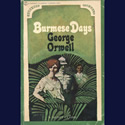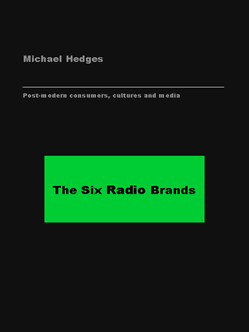ftm Radio Page - September 10, 2010
Government Double-takes On World Service Specifics
 International broadcasting reaches into dark places. Metrics are obscure. Missions blur. And it’s hard to graft an answer to the head of a pin. The fight for funding requires tenacity.
International broadcasting reaches into dark places. Metrics are obscure. Missions blur. And it’s hard to graft an answer to the head of a pin. The fight for funding requires tenacity.
John W. Kluge 1914-2010
early Eastern Europe investor
Billionaire, broadcaster and serial entrepreneur John W. Kluge died this week, age 95. He was a champion risk-taker. Many of his ventures succeeded wildly, making Kluge very rich. Some failed miserably.
Kluge, who was born in Germany, entered broadcasting in the United State with the acquisition of the DuMont network. That was leveraged into Metromedia, owner of seven television stations and 14 radio stations, the legal limit at the time. Metromedia was the first broadcast operating company independent of the major US networks. Metromedia radio stations were legendary for high profile show hosts and local news. (See NYT obit here)
In the 1990’s Metromedia International (MII) was formed as part of Kluge owned International Telcel, an early developer of wireless cable and pager technology in Europe and Asia. MMI owned, through an array of partnerships, radio stations in Eastern Europe, Finland, Germany and Russia, one of the earliest foreign investors in broadcasting in the region.
Most of the MII radio stations were sold to Communicorp in 2004. MII alumni can be found in all corners of European broadcasting today. (JMH)
Pioneering African station honored
“shining example”
Several radio broadcasters stand out in the difficult environment of conflict and post-conflict regions but Radio Okapi in the Democratic Republic of Congo is one of the most notable. This year the station will receive the Free Media Pioneer award from the International Press Instutute (IPI).
Radio Okapi was launched in 2002 through the joint efforts of Fondation Hirondelle and the United Nations Organization Stabilization Mission (MONUSCO). The station certainly meets the IPI’s criteria for this and, frankly, any other award. (See Fondation Hirondelle statement here – in French)
“They are a shining example not only for media in other conflict or post-conflict areas, but for radio stations around the world,” said IPI Interim Director Alison Bethel McKenzie in a release.
By any measure, Radio Okapi is a success. Its services, now including the first news website in DRC, have set a benchmark for professionalism. (See earlier article on Radio Okapi and radio broadcasting in the DRC here) It’s estimated that one-third of Congolese regularly listen to the station.
The Free Media Pioneer award for Radio Okapi will be celebrated at the IPI World Congress in Vienna. (JMH)
Like Mr. Ferrari said – don’t touch
Royalty looking on
Executives and staff at Spain’s Onda Cero compared the radio channel to a very expensive automobile. “We have looked it over and given it some body and paint touch-ups,” said show host Carlos Alsina to El Mundo (September 8), “which was what it needed.” Onda Cero is celebrating its 20th anniversary and was honored by a visit (September 9) by Felipe, HRH Prince of Asturias, heir to the Spanish throne.
“What works we don’t touch,” said station president Javier González Ferrari, resisting the temptation to change things too much. Onda Cero is, however, shuffling the station line-up a bit, mostly augmenting sports coverage.
Still, there’s a little pressure from the top. “As the second radio we have the ambition to be the first,” said Grupo Antena 3 CEO Silvio Gonzalez, “because there is no reason why we cannot be leaders.” (JMH)
Second national license considered
Consolidation required
Austria’s media regulator KommAustria raised the possibility (August 12) of licensing a second national private sector radio channel. You could almost hear the gasps…and silence. The necessary terms would require a bit of consolidation.
There are possibilities, reports MediaNet (September 7), and several local and regional broadcasters seem interested. Austria has one national private radio channel, KroneHit, licensed in 2004. Public broadcaster ORF has four national radio channels. KommAustria set a February 2011 target for authorizing a second national radio channel.
Much of the speculation centers on Radio Energy, owned by the French NRJ Group. It currently operates in Vienna, Salzburg and Innsbruck. To qualify for the suggested second national radio channel authorization the technical reach must cover 60% of the country. But, so far, none of the local or regional broadcasters seem to be jumping up and down. Speculation is that many discussions are taking place, quietly so not to push the financial part of negotiations or disturb the important relationship with private radio sales house RMS. (JMH)
You may not mention Facebook
“commercial interests”
How many broadcasters have Facebook pages? Thousands? Certainly. Social networking portals are, without question, an important way of communicating with listeners and viewers, particularly – but not exclusively – young people.
But for Sweden’s public radio and television broadcasters it’s not allowed to suggest that listeners or viewers visit a program’s Facebook page. Listeners to the morning show on P4 Kristianstad and viewers of the Sydnytt regional news program on Swedish public TV were invited to visit Facebook pages. The Review Board for Radio and TV (Granskningsnämndens för radio- och tv) decided (September 6) such suggestions break rules to prevent favoritism toward commercial interests, reported DagensMedia (September 6).
By law Swedish public broadcasters may not “unduly benefit commercial interests” and “should not encourage purchase or lease, be promotional or highlight a product or a service in an improper manner.”
The Review Board for Radio and TV just started its work policing broadcasters in Sweden August 1st. (JMH)
Radio Page - September 3, 2010
Radio Page - August 27, 2010
Radio Page - August 20, 2010
Radio Page - August 13, 2010
Radio Page - July 30, 2010
Radio Page - July 23, 2010
Radio Page - July 16, 2010
Recently added radio audience figures and references
- Czech Republic - Radio Audience (19/08/2010)
Top stations, national survey, trend - Digital broadcasting associations (12/08/2010)
- UK - National Radio Audience (05/08/2010)
market share, trend, sectors - UK - London Radio Audience (05/08/2010)
market share, trend - UK - National Radio Audience (05/08/2010)
BBC/commercial 'gap' - Poland - National Radio Audience (29/07/2010)
national survey, market share, trend - Switzerland - French region Radio Audience (22/07/2010)
share, trend - Switzerland - Swiss-German region Radio Audience (22/07/2010)
share, trend - Switzerland - Italian region Radio Audience (22/07/2010)
share, trend - France - National Radio Audience (15/07/2010)
national channels, sectors, market share, reach/TSL - Germany - Radio Audience (14/07/2010)
leading stations, 2010 national survey, daily reach - Belgium - Radio Audience (01/07/2010)
Flemish region, market share, trend - Belgium - Radio Audience (01/07/2010)
French region, market share, trend - Belgium - Major Media (16/06/2010)
Flemish region, radio broadcasters, public, private
More Resources
Also see ftm Knowledge
Digital Radio - Possibilities and Probabilities – new
Digital radio has many platforms. From broadcast platforms to internet radio and rapidly emerging smartphone platforms, listeners and broadcasters have choices galore and decisions to make. Some regulators have made up their minds, others not, some hedging their bets. This ftm Knowledge file details the possibilities for digital broadcasting and the probabilities for success. Includes Resources 110 pages PDF (August 2010)
Europe's Radio - Western Europe
Opportunity meets tradition in Western Europe's radio broadcasting. Change has come fast and yet oh, so slowly. This ftm Knowledge file contains material and resources on public and private radio broadcasting in Austria, Belgium, France, Germany, Netherlands and Switzerland. 107 pages. PDF (June 2010)
Europe’s Radio – Eastern Europe
Eastern Europe’s radio writes new rules. In fact, most everything about radio in this region is new... and changes often. The ftm Knowledge file reports on Belarus, Bulgaria, Czech Republic, Hungary, Moldova, Poland, Ukraine, Romania, Russia and Slovakia. 65 pages PDF (February 2010)
Europe’s Radio – Northern Europe
Northern Europe’s radio has a very digital sound. And change is in the air. Economic challenges abound for both public and commercial broadcasters. The ftm Knowledge file reports on Denmark, Estonia, Finland, Iceland, Ireland, Latvia, Lithuania, Norway, Sweden and the UK. 72 pages PDF (December 2009)
Become an ftm Individual or Corporate Member and receive Knowledge files at no charge. JOIN HERE!
ftm Knowledge files are available to non-Members at €49 each. The charge to Individual Site Members is €15 each.

The Six Radio Brands is about the uniquely European development of radio brands. Competition among broadcasters - and certainly between the public and commercial sectors - gives radio in Europe a rich dynamic. As consumers become more media-literate and demand more attachment broadcasters find target markets illusive. 100 pages. 2004 Available at no charge to ftm Members, €49 for others. Email for more information |